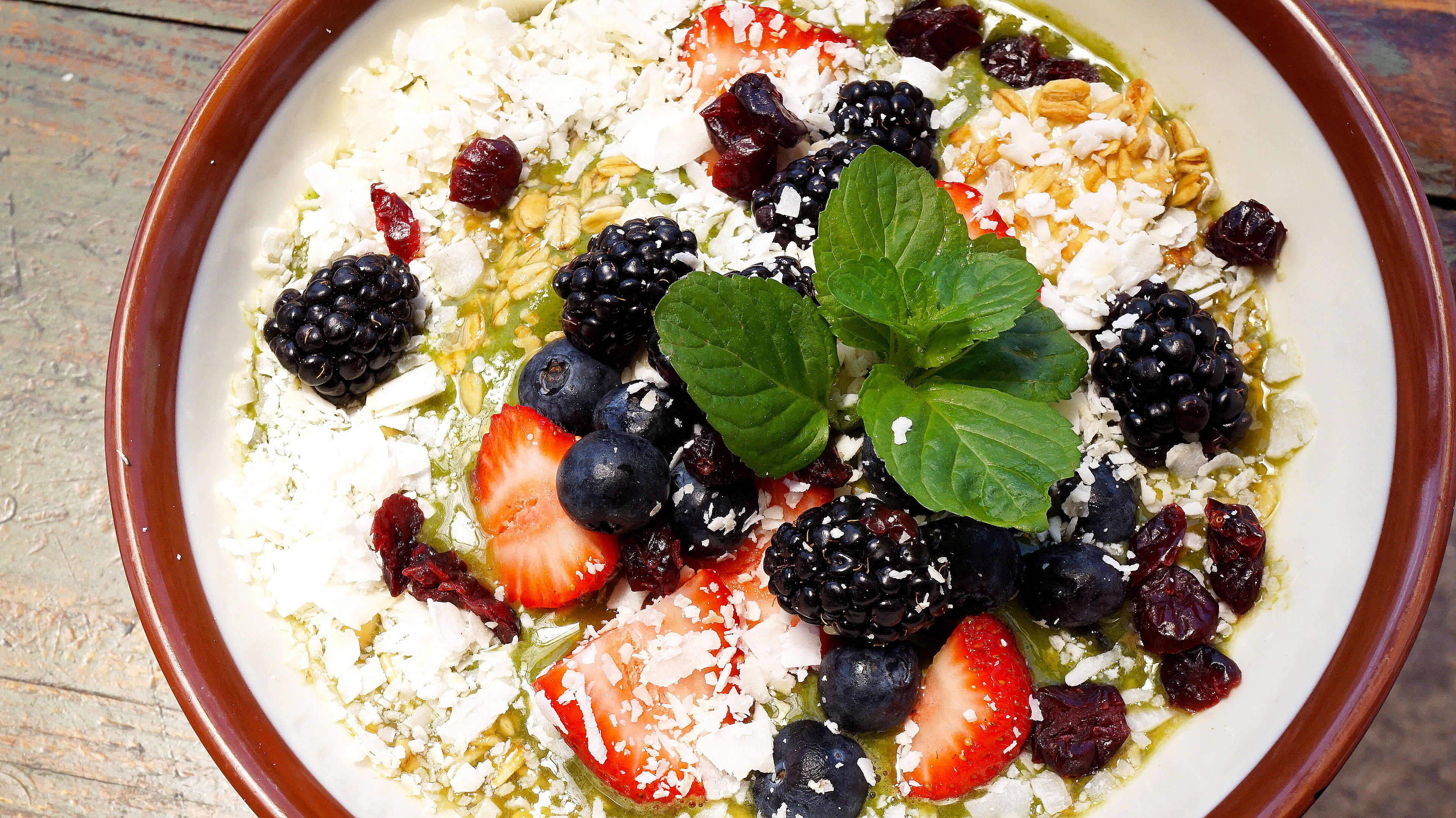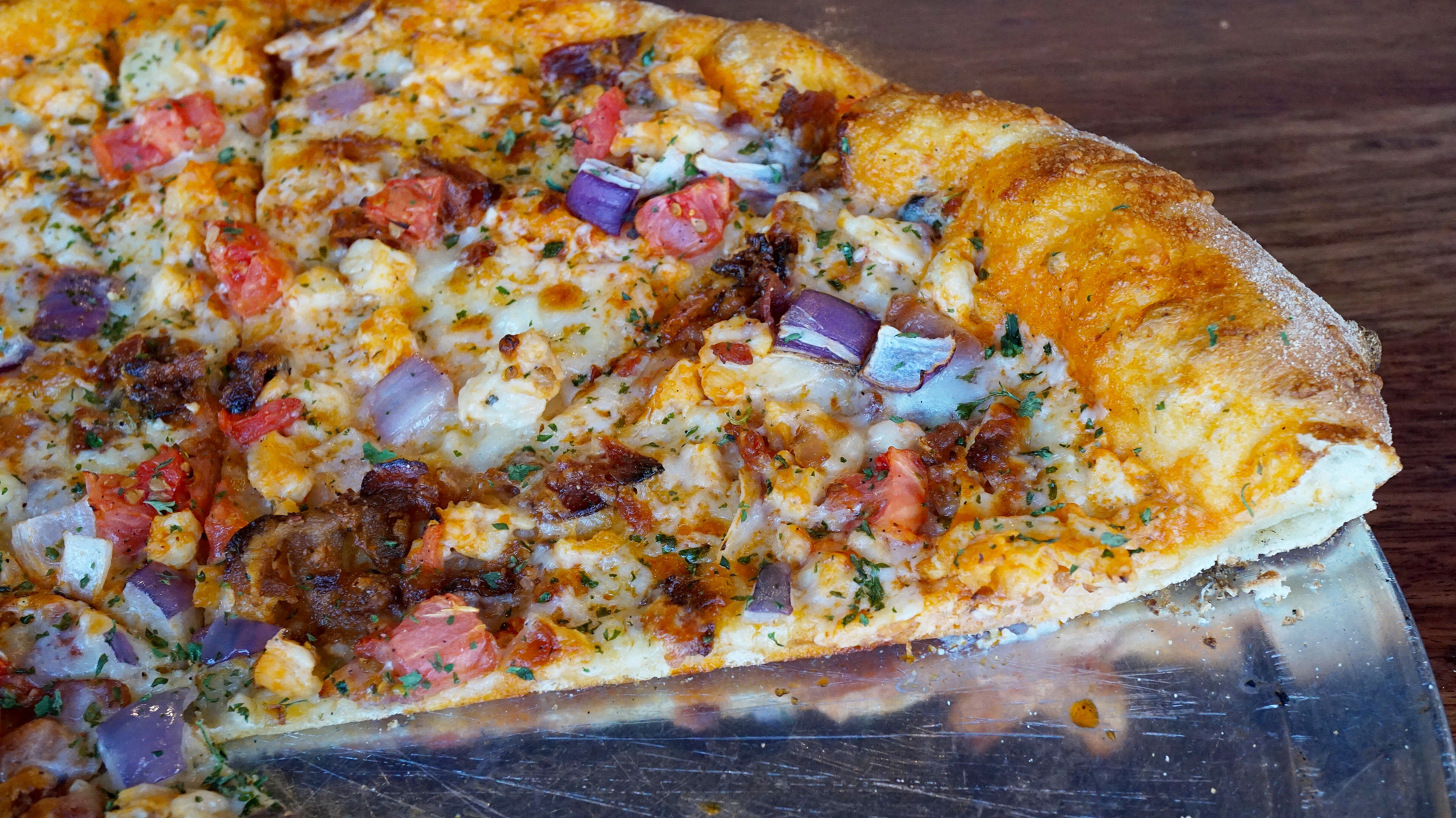Massimo Bottura Talks About the Song of His Career, Food Waste, the Dish He Hates, and More at Food Bowl

Last month, the Los Angeles Times decided to take over the entire month of May and host a variety of events throughout the Los Angeles area and its neighboring cities. For thirty-one days Food Bowl attendees could partake in various dinners, panel discussions, and the four-day festival: Night Market. I was excited to attend the announcement lunch at Spring in Downtown Los Angeles, the Pastrami Panel with Johnathan Gold, to interview Jenn Harris, and to go to a few other events that were being held. Going from event to interview to event with a few friends offered great evenings, but none was more of a favorite than the Food for Soul conversation at the Ace Hotel in Downtown LA.
During the hour long discussion, I loved listening to Johnathon Gold moderate the panel with some of the most well-known culinary leaders. On stage, Gold opened a conversation about food sustainability with Mario Batali, Massimo Bottura, Roy Choi, Dominique Crenn, and Mary Sue Milliken. The five chefs tackled the macro issue of how millions of people starve every day while “one-third of the world’s food is thrown away”. Batali explained that his approach to solving the large-scale issue was that “fundamental food waste is about products that never make it to the store, or those that just sit on the shelves. It’s more than just chefs saving scraps.”  He took his perspective on the issue a step further by going a practical route in saying that he hired a food waste consultant to analyze what was being done within his restaurants and to make improvements accordingly.
He took his perspective on the issue a step further by going a practical route in saying that he hired a food waste consultant to analyze what was being done within his restaurants and to make improvements accordingly.
On the micro level, each offered their own opinion on how food could be effectively used in restaurants. Choi explained that when it comes to his restaurants, “I use everything.” To see the chef behind the Kogi truck and Locol express that he uses as much of the produce and ingredients that enter his restaurants as possible was commendable. Opposite him, Milliken (behind Border Grill) offered an action she utilizes which was to simply, “Ask questions. Find out where your vendors are getting their products and suggest that customers take home the leftovers from their plate.” I was interested in a lot she had to say since many of her suggestions and her opinion on the matter were actionable and simple enough for even me to do.
 While I was happy to listen in on the conversation that took place on stage, I was excited to interview Massimo Bottura. The Italian chef may appear laid-back in his appearance, but his resume showcases a plethora of experience and a laundry list of awards including three-Michelin-stars for his restaurant, Osteria Francescana. Adjusting my enthusiasm down to a professional level I sat with Bottura and asked him a few questions that he hopefully hadn’t heard one hundred times before.
While I was happy to listen in on the conversation that took place on stage, I was excited to interview Massimo Bottura. The Italian chef may appear laid-back in his appearance, but his resume showcases a plethora of experience and a laundry list of awards including three-Michelin-stars for his restaurant, Osteria Francescana. Adjusting my enthusiasm down to a professional level I sat with Bottura and asked him a few questions that he hopefully hadn’t heard one hundred times before.
Follow My Gut (FMG): What song defines your culinary career, and why?
Massimo Bottura (MB): There are so many, but “Girl from the North Country” by Bob Dylan. The song connects to past memories by talking about this amazing girl with long blonde hair who was working at a cash register. In it, he [Dylan] is talking about something that won’t be the same, but in his memory, yes. So I always think about that. When I think about food I never think in a nostalgic way, but in a critical way. To bring the best of the past into the future.
FMG: If there was a dish you could remove from every menu in the world, what would it be?
MB: Spaghetti al Bolognese because it doesn’t exist. Spaghetti is from South of Italy and when you cook spaghetti you need a velvety sauce and not a meaty sauce. When you add ragu alla bolognese chopped by hand, you need a large pasta where the sauce can grab to it. So, it doesn’t make any sense.
FMG: How do you feel about the way chef’s cook today?
MB: When some chef are in the kitchen because they have to be in the kitchen, they don’t do a good job. I think he doesn’t cook with his heart.
FMG: What kind of impact are you hoping to make with Food Bowl’s attendees?
MB: I think at events like Food Bowl it’s very important for people to talk. To talk about a cultural project like Food for Soul is not charity, it’s cultural. Charity is something you do, at the end we feed some need which is important. But the major point here is to fight the waste because 1.3 billion tons of food is wasted every year. This is something that is unacceptable in 2017. What we need is a different approach to food, we need to talk about this, and we need to change the attitude of people towards food. This is cultural.
With only a few minutes to speak with Bottura, I was glad I was able to get an idea of him as a chef and his stance on food waste. To hear him and the other chefs discuss the way they’re actively contributing to food sustainability was motivating. Attending the panel and then interviewing Bottura left me with a feeling that I could do better with the food I toss out. Realizing that I am adding to the food that is being wasted while many people starve propelled me to implement better practices when it comes to food. If the goal was to change minds, I can say they did that with me and that has to count for something.
Follow Massimo Bottura.
Social: Website, Facebook, Instagram, and Twitter.
Share this:
- Click to share on Facebook (Opens in new window)
- Click to share on Twitter (Opens in new window)
- Click to share on Tumblr (Opens in new window)
- Click to share on Pinterest (Opens in new window)
- Click to share on LinkedIn (Opens in new window)
- Click to email this to a friend (Opens in new window)
- Click to print (Opens in new window)

Follow My Gut
Follow My Gut is a restaurant discovery blog created to help people find restaurants and indulge in food. There's great food in restaurants and those finds should be shared! If you feel the same way and want to join in new and forgotten discoveries, all you have to do is Follow My Gut by subscribing. You can also stay up to date on all food finds on Facebook and Instagram at @FollowMyGut!





